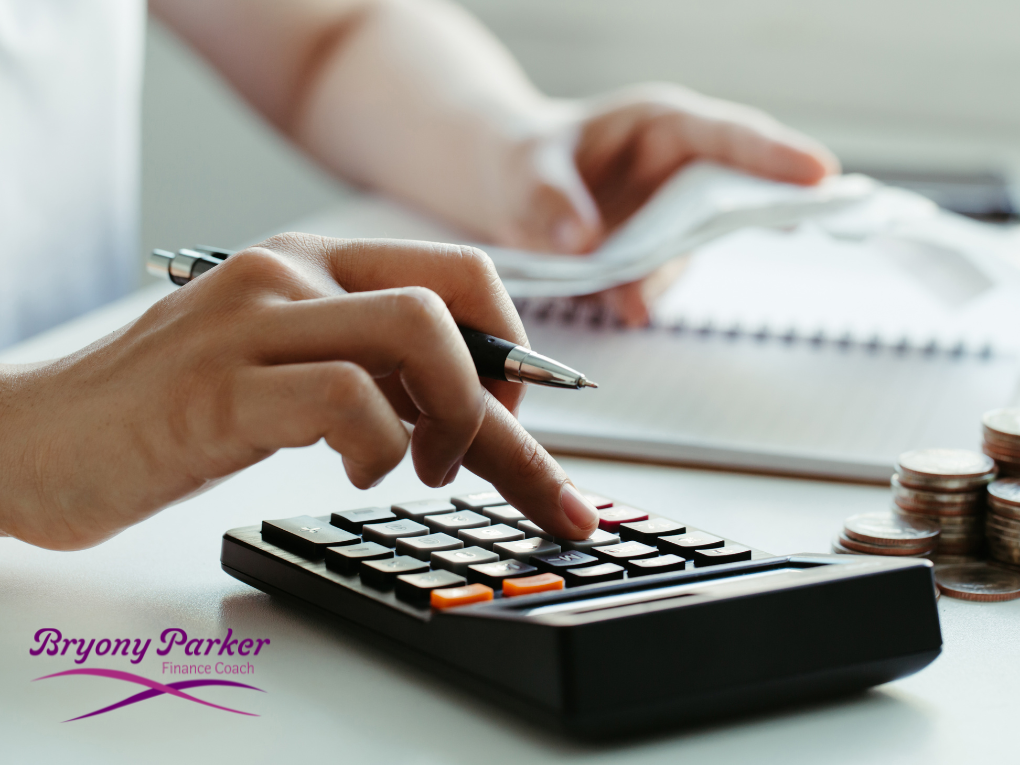We’ve all made financial decisions we wish we could change. Maybe it was racking up credit card debt, undercharging for our work or investing in something that flopped. Or maybe it’s as simple as not saving as much as we could and should have. Whatever the decision you regret, one thing is true: dwelling on past money mistakes does nothing but hold us back. I speak to women all the time who feel weighed down by guilt or embarrassment over their past financial choices. And that guilt can often lead to avoidance, self-doubt and a lack of confidence in handling money going forward. But here’s the truth: you can’t change the past, but you can start forgiving yourself for past money mistakes, learn from them and build a better financial future. And I’m going to use this blog to show you how!
Why forgiveness matters
Money guilt is a powerful thing. When we endlessly blame ourselves for our past decisions, it creates a negative feedback loop. We start believing we’re ‘bad with money,’ which can lead to financial anxiety, a mental block when it comes to looking at bank statements and spreadsheets, and even a hesitation to invest in our businesses and dreams.
It might help you to hear that financial regret is very common. A recent survey found that 51% of Brits have financial regrets, with the biggest being not saving more regularly, spending too much on non-essential items and not learning about and engaging with their finances sooner. If that makes you feel a little jolted then don’t worry, because there are ways to take yourself from guilt to forgiveness. The key is shifting from shame to self-compassion. That’s because when you let go of the guilt, you free up the mental energy to make better financial choices.
How to forgive yourself for past money mistakes
1. Acknowledge the mistake without judgment
Instead of replaying what went wrong over and over in your mind, why not try a different approach? I would recommend that you look at it as a learning experience. Rather than saying, “I was so reckless with money,” try, “I made a choice based on what I knew at the time.” Your past self was doing the best they could with the information and circumstances they had.
2. Identify the root cause
Now, reflect on what led to the decision? Were you spending to fill an emotional gap? Did a lack of financial education play a role? Did fear of money stop you from charging what you’re worth? Understanding the ‘why’ behind your past mistakes can help you make a better decision in a similar situation next time around.
3. Reframe the narrative
Instead of focusing on what went wrong, shift to what you learned. For example: “that business investment didn’t pay off, but I now know what to look for before making future decisions.” I believe that every financial mistake holds a lesson for us, and those lessons make us wiser moving forward.
4. Take small, intentional steps forward
I want you to channel your energy into action rather than staying stuck in regret. This could mean:
- Setting up a new savings system and creating a vision board to remind you why it’s important! That might have your dream home, holiday or just a picture of a happy, debt-free you on it.
- Reviewing your pricing structure in business – this one might feel scary, but I promise you won’t regret it.
- Creating a plan to pay down your debt – this needs to be realistic and something you stick to. You might consider having an accountability buddy.
- Tracking your finances more proactively – I love making my money sessions something I look forward to. You might choose to pour a glass of wine, light your favourite candle and put uplifting music on!
Every small step you can take will build your confidence and put you back in control. It’s worth the time and energy, I promise!
5. Practice self-compassion
We can be so, so much harder on ourselves than we ever are on other people. So, I want you to ask yourself: would I speak to a friend the way I speak to myself about money? If the answer is no, it’s time to be kinder. Your money mistakes don’t define you, what matters is how you move forward from them!
The impact of forgiving yourself for past money mistakes
I hope you will find that forgiving yourself for past money mistakes will have a profound effect on your mindset and financial well-being. It should give you more confidence in financial decisions as you start seeing money as something you can manage, not something that controls you. I hope you will have a healthier relationship with money, rooted in positive energy and not fear. You can spend and save intentionally and have the desire to invest in yourself. Whether it’s raising your prices, hiring help, or putting money into personal growth, self-forgiveness makes it easier to trust yourself with financial choices. And if you need any support, please don’t hesitate to get in touch for a chat!

